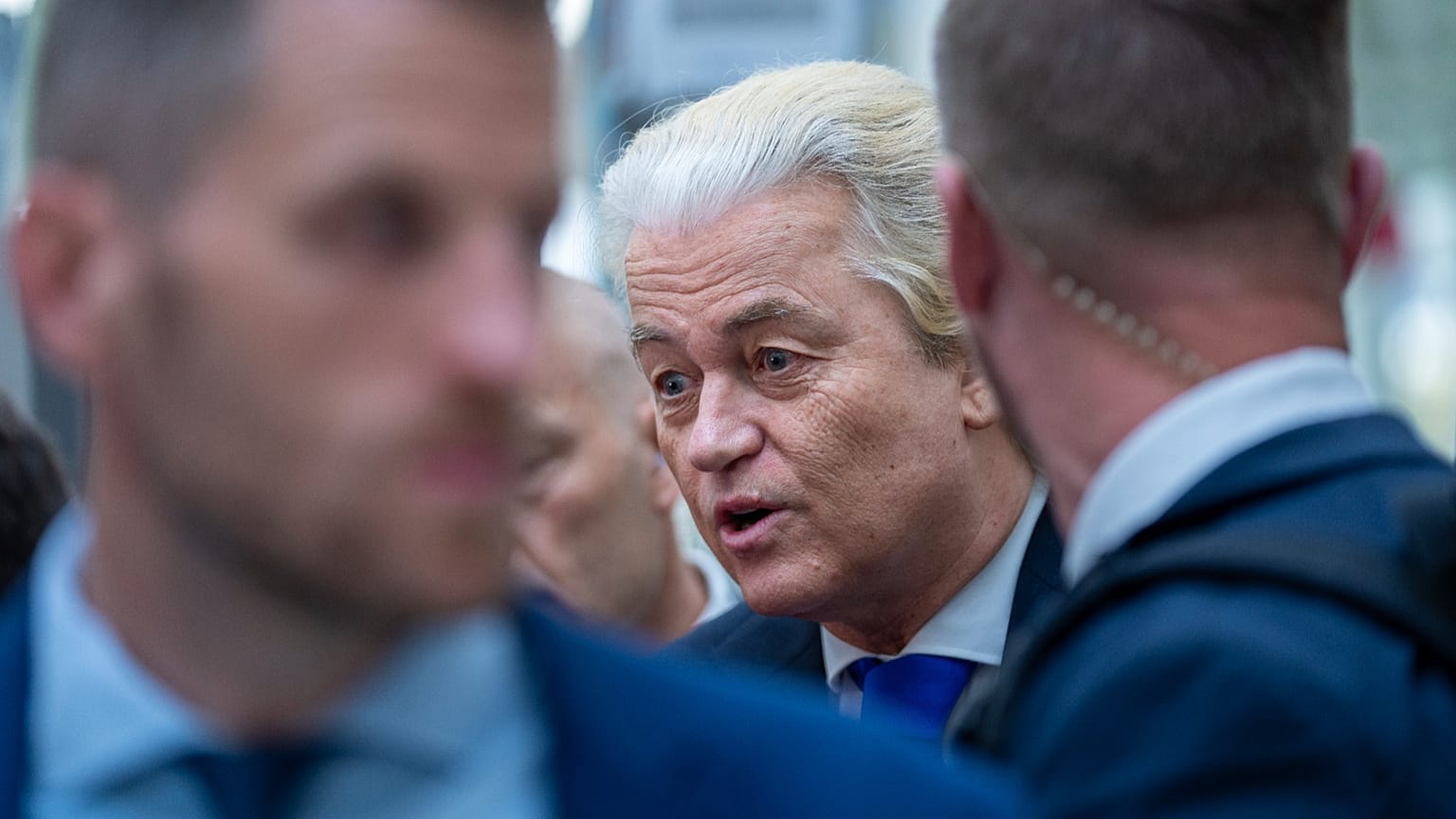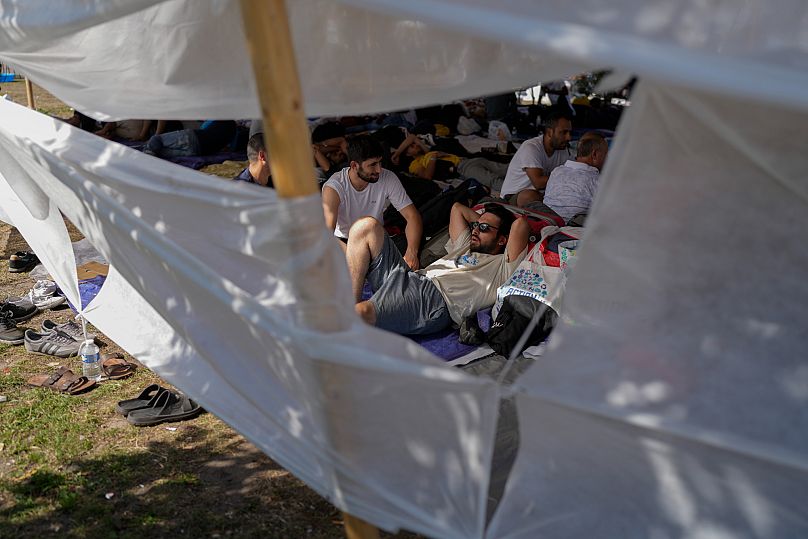"We've done enough concessions," Wilders said during a press conference announcing his 10-point plan on Monday, adding that if "nothing or not enough happens, we’re out."
 ADVERTISEMENT
ADVERTISEMENT
Leader of the Dutch far-right Party for Freedom (PVV) Geert Wilders has presented a 10-point plan on Monday to radically slash migration, putting pressure on his four-party coalition to toughen migration policy or risk a cabinet crisis.
"The gloves are off," Wilders said during a press conference to announce the plan, adding that if migration policy is not toughened up, his party "is out of the cabinet."
The proposal calls for a complete asylum stop, as well as temporarily halting family reunions for asylum-seekers who have been granted refugee status and the return of all Syrians who have applied for asylum or are in the Netherlands on temporary visas.
He also wants to close asylum centres and evict visa holders from centres to create more space, rather than opening new ones, which opposition parties and activists have called for to prevent overcrowding and inhumane conditions for asylum seekers who need shelter.
People with a dual nationality who have been convicted of of violent or sexual crimes should have their Dutch nationality revoked and be deported, he added, and the army should be deployed to guard land borders.
A political career built on migration
Wilders has built his political career on calling for hard-line policies against Islam and migration in the Netherlands. Long in opposition, his party now has some power as a coalition partner and he said his patience has run out after months of talks and little action from the government to crack down on migration.
His PVV won the national election in 2023, but he failed to secure the position of prime minister after resistance from other major parties.
The party-neutral Dick Schoof became prime minister in a coalition between the PVV, the right-wing People's Party for Freedom and Democracy (VVD), the reformist New Social Contract (NSC) and right-wing Eurosceptic Farmer–Citizen Movement (BBB).
Wilders said some of the measures already have been adopted by other European nations, including neighbouring Germany. Others will require the Netherlands stepping out of European conventions, he said.
Ministers in the Dutch coalition would have to reach an agreement on the proposals before sending them to parliament for approval. That would mean renegotiating the policy agreement that paved the way for the creation of the four-party government.
A common threat from Wilders
Earlier this year, Wilders had already threatened to quit the coalition and call for fresh elections unless changes tightening the country's asylum law were adopted.
A draft law presented by PVV Minister of Asylum and Migration Marjolein Faber was criticised by the Dutch Council of State, who raised issues about its legal viability and concluded the legislation was "sloppily drafted."
Wilders has previously threatened to trigger political crises in the Netherlands should other parties not comply with legislation on immigration.
In October last year, he sought to declare a nationwide state of emergency in order to push through stricter asylum measures without parliamentary approval.
The four governing parties ultimately agreed on a new set of measures restricting asylum seekers' right to appeal in court proceedings and limiting the amount of time their status is valid to three years.
But on Monday, Wilders said his patience was exhausted at the lack of concrete action since the coalition agreed on these measures.















